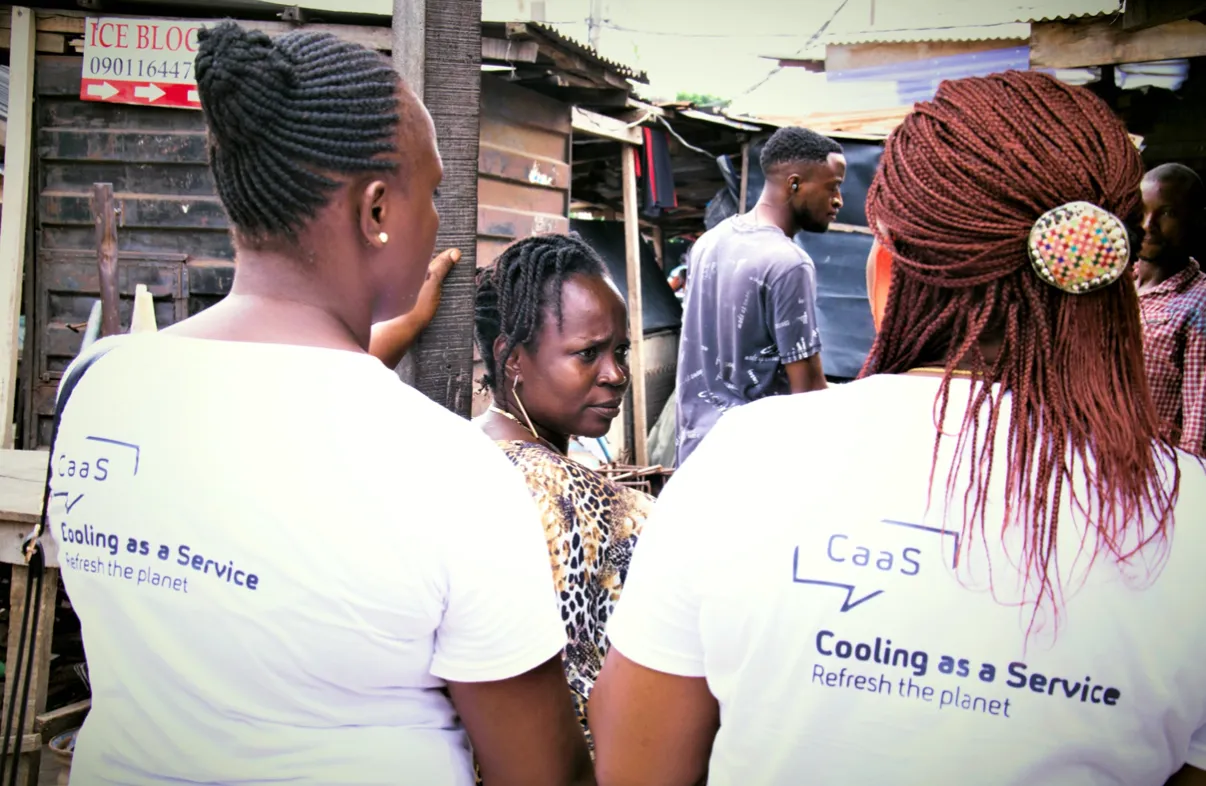Reducing Food Waste and Vaccine Spoilage through Cooling as a Service (CaaS)
Although climate-friendly cooling technology is available, it has not been deployed at the pace needed to overcome various market barriers. Examples of these barriers include up-front costs, uncertain returns, lack of maintenance skills and limited financing options

CaaS has supported Koolboks to expand the outreach of our products to customers that are very sensitive to upfront investments, while exposing them to the full value of our technology and service.
— Ayoola Dominic, CEO, Koolboks.
As global temperatures rise, more people will require access to cooling. Air conditioning and refrigeration are necessary to maintain habitable living conditions and enable life-saving healthcare and food security.
According to the International Energy Agency, the average cooling system sold today consumes around two to three times more energy compared to other efficient options available. Inefficient cooling systems also emit harmful refrigerant gases into the environment. This has become an even greater problem in African countries that have become a dumping ground for cheap, illegal imports of polluting, energy-consuming and short-lasting second-hand equipment from Europe according to Thomson Reuters Foundation.
Over the past decade, the demand for cooling systems has doubled or even tripled in some African countries. This demand is expected to increase 10-fold over the next 20 years. The expected rise in demand makes access to cooling a fundamental social and environmental challenge.
Although climate-friendly cooling technology is available, it has not been deployed at the pace needed to overcome various market barriers. Examples of these barriers include up-front costs, uncertain returns, lack of maintenance skills and limited financing options.
CaaS makes efficient cooling more accessible for all
In the past two years, the Basel Agency for Sustainable Energy (BASE), an Efficiency for Access Programme Partner, has been working to mainstream Cooling as a Service (CaaS) around the world. CaaS is an innovative business model that enables customers to base their decision on lifecycle cost rather than on the purchase price of cooling equipment. The model aims to help increase people’s access to energy-efficient cooling technologies without facing upfront investment barriers
With CaaS, end customers only pay for the cooling they receive, rather than the physical cooling equipment. The technology provider installs and maintains the cooling equipment and recovers the costs by periodic payments from the customer. These payments are fixed-cost-per-unit for the cooling service delivered (for example, dollars per tons of refrigeration, or units of cooled air). The technology provider also pays for the electricity consumed by the equipment. This serves as an incentive to install equipment that is energy-efficient and that receives high-quality maintenance.
BASE launched the CaaS Incubator initiative in January 2020 with the aim to support five technology providers from around the world in implementing CaaS projects. In Nigeria, BASE is working with Koolboks, one of the five winners selected for the CaaS Incubator programme, on two of their ground-breaking projects. The projects aim to provide high-tech, energy-efficient, solar-powered freezers and refrigerators to local businesses and healthcare facilities.

CaaS to reduce food waste in the markets of Lagos
According to the United Nations, one-third of food produced globally is lost or wasted. In developing countries, 40% of food produced is wasted before it reaches the market, mostly due to lack of proper refrigeration and other supply chain challenges. Once the food arrives in the markets, traders can spend up to NGN 1000 (equivalent to 2.50 USD) per day running their diesel generators for their cooling system. Bringing off-grid refrigeration to farmers and traders can increase their income by an estimated 50%, while reducing harvest wastage to below 5%.
BASE and Koolboks are working to provide solar-powered refrigerators and freezers to ensure fresh produce for traders in the markets of Lagos. The aim of the project is to eliminate the challenges of erratic power supply in cold-food storage. This will enable traders to reduce food waste and avoid using diesel generators, while simultaneously increasing their revenues. BASE and Koolboks’ developed a ‘Cooling as a Service’ (CaaS) contract that enables traders to access cooling technology without a large upfront payment.

CaaS to fight vaccine deprivation in Delta State
Cooling is also crucial for the healthcare sector. Besides the demand of cooling for patients, hospitals face a challenge to provide safe cold storage for vaccines and medical supplies. Many healthcare facilities do not have the resources to store vaccines due to unreliable energy supplies. This leads to the spoilage of around 25% of vaccines. Data from Health Affairs suggests that 55% more vaccine storage capacity is needed in Nigeria. A safe storage solution for medical supplies has become exceptionally important as the world combats and recovers from a global pandemic.
BASE and Koolboks are working together to provide vaccine refrigeration storage for all 25 Delta-state healthcare facilities. Having Koolboks’s solar-powered systems in place will ensure vaccines are stored correctly, with a secure source of energy and reliable maintenance.
***
About the author: Veronica Corno is a Climate Finance Projects and Communications Officer at BASE, a non-for-profit foundation that works to unlock investment in sustainable energy and climate change solutions around the world.